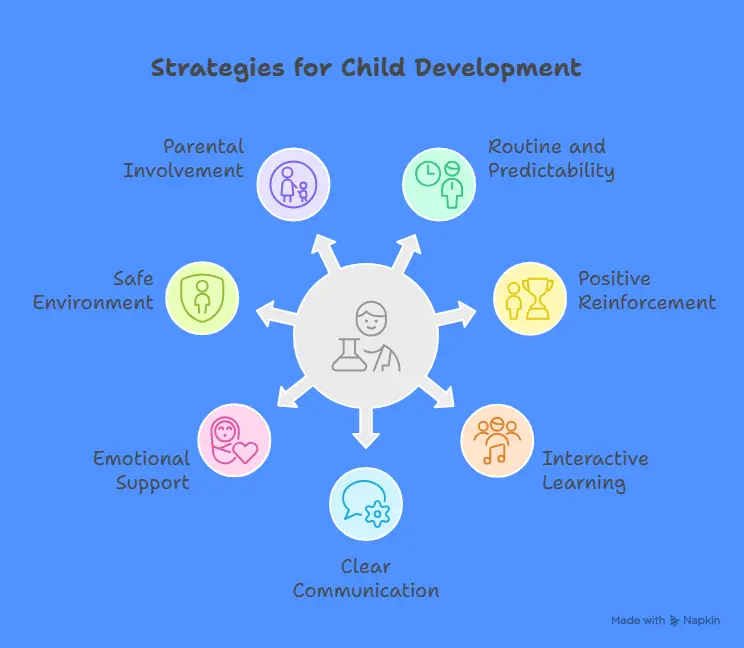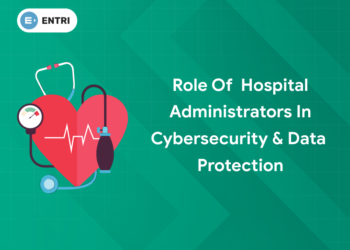Table of Contents
A pre-primary classroom should be warm and inviting while offering structure for learning, playing, and growing. What the speaker is teaching is clear. Kids may develop self-care, emotional intelligence, and true relationships during this period. For kids to acquire responsibility, teachers must be patient, kind, and persistent. If they have trustworthy individuals to look up to, regular homework, and supportive professors, students may feel more comfortable attempting new things in class. Teaching youngsters to enjoy learning and maintain it for life is essential to an effective early childhood education program.
Learn the Montessori philosophy, classroom management techniques, and hands-on activities!
Why Classroom Management Matters in Pre-Primary Education
It is necessary to have effective classroom management while teaching young children. With children beginning their official education in pre-primary school, it is essential to have a management structure that is both effective and efficient. After experiencing it, individuals report feeling more at ease, engaged, and inspired.
In classrooms that are well managed, pupils are better able to comprehend the expectations placed upon them. The structure and consistency that it provides are extremely beneficial to the emotional well-being of a child of any age. Establishing patterns and establishing clear norms is a great way for young people to learn about responsibility, collaboration, and self-control. Young individuals who are in possession of these characteristics have a greater chance of succeeding academically and in life.
When they have a well-managed classroom, teachers may be able to dedicate more time to actually teaching and less time to dealing with incidents that cause disruptions. Inquisitiveness and inventiveness are both fostered positively by atmosphere. These teachings are beneficial to the levels of focus, communication, and self-esteem that are present in adolescents.
In general, a pre-primary classroom that is well-managed offers a secure environment in which kids may develop intellectually, socially, and emotionally.
Understanding the Pre-Primary Classroom Environment
1: What is the primary focus of the first plane of development in the Montessori method?
When it comes to learning and development, pre-primary schools are fantastic locations for young children since they provide a wide variety of enjoyable activities. In some places, there are a great deal of bright things that children are able to touch and play with. As well as gaining the intellectual abilities that are necessary for subsequent grades, the primary emphasis of this grade is on developing the physical, social, and emotional skills that are necessary for later years.
When they reach this age, children are often busy, but they are also learning how to talk for themselves. So, it is important for educators to strike a healthy balance between a rigorous curriculum and a relaxed classroom environment.
Start your journey to becoming a certified Montessori teacher! Get a free Demo Here!
These are some of the fundamental components that make up an effective atmosphere for pre-primary education:
- Using bright displays, graphs, and artwork in the classroom helps to create a more lively atmosphere for the students.
- Promotion of experiential learning may be accomplished by participation in activities such as role-playing, reading, painting, and the creation of surroundings. In addition to other activities, reading is one of the activities that supports learning via experience.
- Children are provided with materials that are easily available within the context of a structured environment, which encourages them to cultivate a feeling of independence and responsibility.
- A number of safety elements and furnishings that are suitable for children of a certain age have been included in the area in order to guarantee their well-being. There is no doubt that it is very wonderful in every manner.
- A well-balanced schedule that includes time for study, relaxation, sleep, and introspection is necessary in order to sustain a consistent level of concentration and excitement. This is very necessary in order to maintain one’s level of concentration and desire.
- Working together, students and teachers may assist kids in developing a feeling of self-worth and social confidence. An example of this would be giving youngsters emotional support in this manner.
- It is possible to make learning in the classroom more interesting and remembered using a variety of different methods. Storytelling, music, and activities that encourage children to interact with one another are some of the tactics that fall under this category.
At pre-primary school, children are given a safe environment in which they are encouraged to take risks, improve their ability to collaborate with others, and develop their self-assurance.
Get Certified & Start Your Montessori Career
Montessori Teacher Training Course by Entri App: Gain expert skills, earn certification, and kickstart your teaching career.
Join Now!Effective Classroom Management Strategies
Consistency, inventiveness, and patience are four qualities that are necessary for competent pre-primary classroom management. In classrooms that are not just well-organized but also enjoyable, young children flourish. Classrooms that are well-managed provide a number of positive outcomes, including constant excellent behavior, attentive pupils, and productive class time. Educators have the ability to create inviting environments in their classrooms that allow all students to relax and concentrate on their studies via careful preparation.
- A child’s ability to cope with feelings of worry and confusion may be improved by the implementation of routines that are simple and consistent. Children benefit from having a feeling of predictability, which in turn helps them feel more comfortable, and routines provide them with this sense.
- It is possible to encourage acts that are desired by using praise, rewards, and words of encouragement in combination with one another via the use of affirmation.
- With the use of interactive activities like music, stories, and games, students may be involved in the process of learning. In addition, making studying an entertaining experience for the kids is another way that these activities may be employed.
- For the purpose of ensuring that your instructions are simple to understand, it is recommended that you use language that is easy to understand and visual aids.
- One of the most important components of providing emotional support to children is teaching them the skills they need to search for peaceful solutions to arguments and to correctly articulate their feelings. This is one of the most important aspects.
- Make it a point to ensure that all of the necessary materials and equipment for the classroom are stored in a position that is not only easily accessible but also comes with a high level of safety.
- In order to properly create and enforce conduct standards that are consistent throughout the home and the school, it is necessary to have the participation of the school’s parents. At both the family and the school level, there must be a pattern of conduct that is constant; this is essential.
Learn the Montessori philosophy, classroom management techniques, and hands-on activities!
Wrapping Up
The foundation for learning that continues throughout one’s life is laid by effective classroom management in pre-primary school. When children have the sense that they are safe and being directed, they are more likely to seek out new experiences, engage with others, and acquire important early abilities. It is the capacity of a teacher to manage the classroom with compassion, patience, and structure that makes all the difference in the world when it comes to molding learners who are self-centered and content.
Get Certified & Start Your Montessori Career
Montessori Teacher Training Course by Entri App: Gain expert skills, earn certification, and kickstart your teaching career.
Join Now!Frequently Asked Questions
Why is classroom management important in early learning?
It helps children feel safe, encourages focus, builds routines, and promotes social and emotional development.
How can teachers handle disruptive behavior in preschool?
Teachers can use calm redirection, praise for good behavior, and consistent routines to guide children toward positive actions.
What are some effective classroom management strategies?
Using routines, positive reinforcement, visual aids, and interactive learning activities are effective ways to maintain order and engagement.
What role do parents play in classroom management?
Parents reinforce classroom expectations at home, helping children maintain consistent behavior and routines across environments.
What are some common challenges in pre-primary classroom management?
Challenges include managing short attention spans, balancing play with learning, and addressing emotional outbursts or conflicts.
Can classroom management affect a child’s emotional growth?
Yes. A positive, well-managed environment helps children feel secure, build self-confidence, and develop empathy and social skills.
What should teachers avoid in classroom management?
Avoid shouting, harsh punishment, or inconsistent rules—these can create fear or confusion rather than cooperation.












